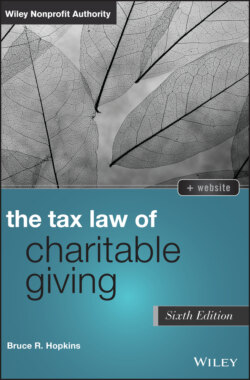Читать книгу The Tax Law of Charitable Giving - Bruce Hopkins R., Bruce R. Hopkins, David Middlebrook - Страница 47
(a) Overview of Law
ОглавлениеPrior to enactment of the unrelated income rules, the federal law embodied the destination of income test.511 Pursuant to this standard, the law merely required that the net profits of organizations be used in furtherance of exempt purposes. That is, the test did not consider the source of the profits, thereby tolerating forms of unfair competition. Thus, in adopting and expanding these rules, Congress has not prohibited commercial ventures by nonprofit organizations. Rather, it struck a balance, as the U.S. Supreme Court characterized the matter, between “its two objectives of encouraging benevolent enterprise and restraining unfair competition.”512
Essentially, for an activity of a tax-exempt organization to be subject to tax, four tests must be satisfied. The activity must (1) constitute a trade or business, (2) be regularly carried on, (3) not be substantially related to the tax-exempt purposes of the organization, and (4) not be specifically exempted (or have the income from the activity specifically exempted) from taxation.513
Nearly all types of tax-exempt organizations, including charitable ones, are subject to the unrelated income rules.514 The unrelated income rules are also applicable “in the case of any college or university which is an agency or instrumentality of any government or any political subdivision thereof, or which is owned or operated by a government or any political subdivision thereof, or by any agency or instrumentality of one or more governments or political subdivisions,” as well as “in the case of any corporation wholly owned by one or more such colleges and universities.”515
To be tax-exempt, an organization must be organized and operated primarily for exempt purposes.516 The federal tax law allows an exempt organization to engage in a certain amount of activity unrelated to its exempt purposes.517 When the organization derives net income from one or more unrelated business activities, known as unrelated business taxable income, it is subject to tax on that income. An organization's tax exemption will be revoked if an inappropriate portion of its activities is not in furtherance of an exempt purpose.518
Business activities may preclude initial qualification of an otherwise exempt organization as a charitable or other entity. This would occur through its failure to satisfy the operational test, which looks to see whether the organization is being operated principally for exempt purposes.519 Likewise, an organization will not meet the organizational test if its articles of organization empower it, as more than an insubstantial part of its activities, to carry on activities that are not in furtherance of its exempt purpose.520
